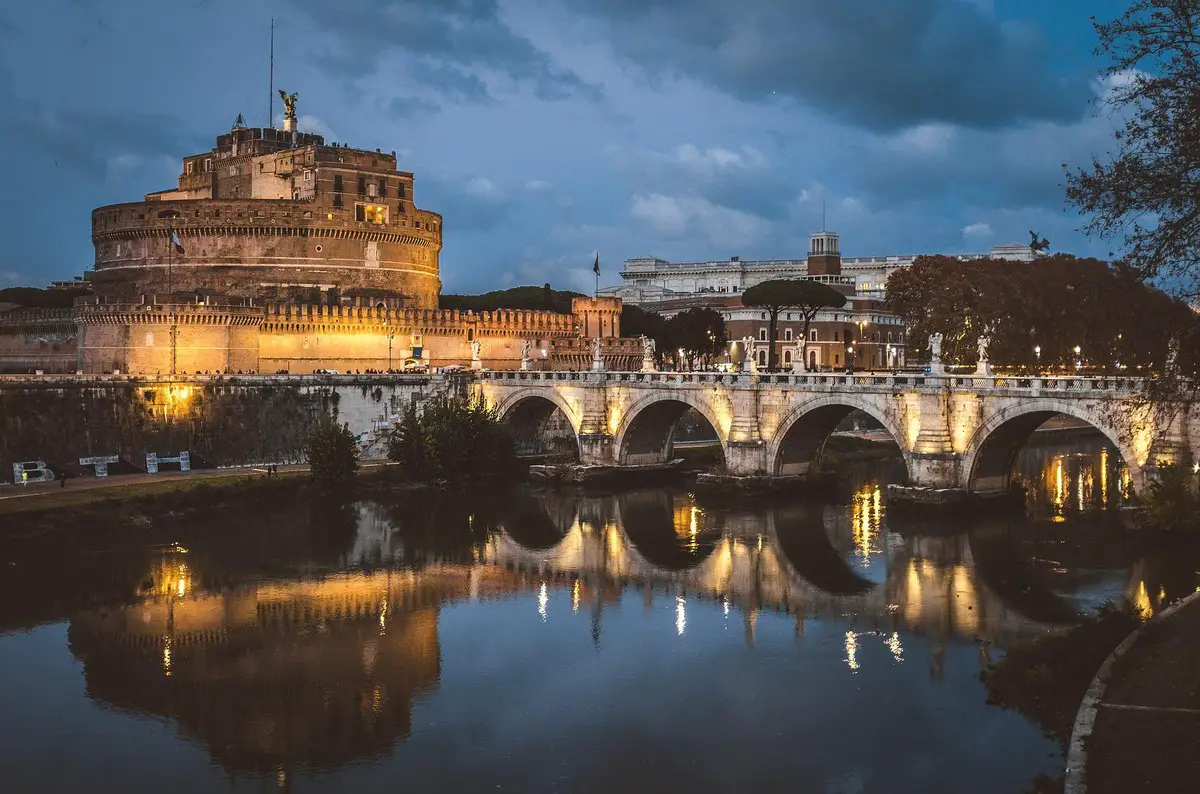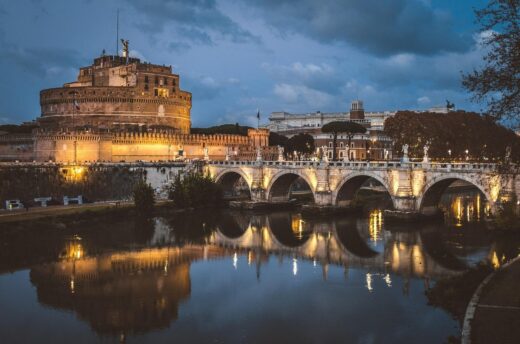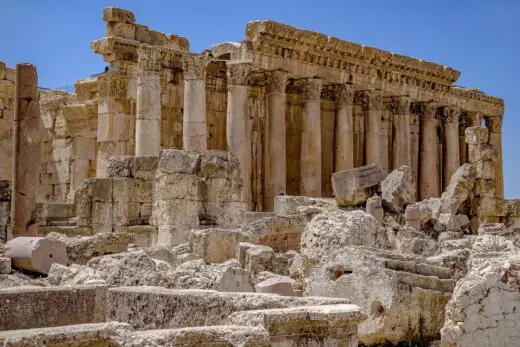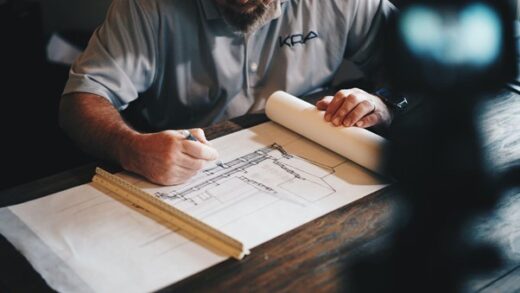Influence of the roman empire on architecture guide, Online building advice, 3D design tips
Influence Of The Roman Empire On Architecture Guide
post updated 28 July 2024
18 July 2022
The Roman Empire was a massive and influential empire that spanned much of Europe and parts of North Africa and the Middle East. As a result, it significantly impacted architecture, culture, and even language. The blog will explore some of how the Roman Empire influenced architecture.
One of the most visible ways the Roman Empire influenced architecture was its use of arches. The ancient Greeks first used Arches, but the Romans used them to new levels by constructing large arches across many different structures. The architecture of the Roman Empire allowed them to create highly complex and heavy structures without using heavy metals or other materials that would have been difficult to transport. As a result, arches became an essential part of many medieval churches and other important buildings throughout Europe.
The Roman Empire and Its Impact on Architecture
One significant way the Roman Empire impacted architecture was its use of vaults. Vaults were initially built as part of ancient Egyptian tombs, but the Romans adopted them for use in many different types of buildings. Vaults became an essential part of medieval cathedrals and other vital structures, allowing them to be much taller than would otherwise be possible. It contributed significantly to their impressive. The Romans pioneered many architectural techniques that are still in use today. The blog will look at some of the most famous Roman buildings and how they’ve influenced architecture over the centuries.
The Roman Empire was the most influential empire of all time. Not only did it significantly impact politics and government, but it also left a lasting mark on the world of architecture. The Roman Empire was mainly known for its majestic and imposing public buildings, such as coliseums, temples, and aqueducts. The Greeks heavily influenced its style, but the Romans added their touch, resulting in a unique and unmistakable architecture that still inspires architects today.
The Roman Empire and Its Influence on Western Architecture
It was the most influential empire of all time. Not only did it have a massive effect on politics and society, but it also left a significant imprint on Western architecture. The Roman Empire was responsible for iconic historical buildings, including the Colosseum, the Pantheon, and the aqueducts.
The Roman Empire and Its Influence on Eastern Architecture
The Roman Empire may have fallen, but its influence on architecture is still very much evident today. In the East, in countries such as Turkey and India, you can see the Roman influence in the ornate details and arches found in their buildings. It is particularly true in Istanbul, where you can find Byzantine churches with stunning mosaics, and in Delhi, where you can see the Red Fort, built by a Mughal Emperor and heavily influenced by Roman architecture.
Its Influence on Islamic Architecture
The Roman Empire fell in the 5th century AD and left a vast cultural and architectural legacy behind. The Roman Empire was a huge and powerful force, and its influence is visible in everything from art to language to religion.
One of the clearest examples of this is Islamic architecture. The soaring arches, intricate mosaics, and majestic buildings of Islamic architecture were all heavily influenced by the Roman Empire. Many of the most famous Islamic mosques, like the Alhambra Palace and the Dome of the Rock, were initially built as Roman Christian churches.
How the Roman Empire Changed Architecture?
Here’s a look at how the Roman Empire changed architecture:
- The Romans pioneered arches and vaults in their buildings, giving their structures more stability and allowing for taller buildings.
- They also developed the use of concrete, which allowed for more intricate and dramatic designs.
- Roman architecture was grand and ornate, with many columns, marble decorations, and statues.
- The empire’s collapse in the 5th century AD led to a decline in architectural standards, and many magnificent Roman buildings were destroyed or abandoned.
- However, Roman architecture was revived in the Renaissance period, and its influence can still be seen in modern architecture today.
The legacy of the Roman Empire in architecture is evident in the many structures that still stand today. From monumental ruins like the Colosseum and the Pantheon to more quotidian landmarks like the Coliseum and the Forum, the Romans impacted how architects design buildings and spaces.
The most important legacy of the Roman Empire was its emphasis on engineering. Architects from all over the world learned from Roman engineers how to build durable structures that could withstand weather conditions and attacks. This knowledge was passed down through apprenticeship and eventually became an essential part of the architecture.
Influence of the roman empire on architecture Conclusion
The roman empire had a profound influence on architecture. Many of the structures that you see around today, such as public buildings, temples, and theatres, were first built by the Romans.
The Romans were skilled architects and engineers, and their buildings were characterized by their simplicity and functionality. The Romans also developed the use of concrete, which enabled them to build taller and more complex structures. Today, the legacy of the roman empire can be seen in the many magnificent architectures worldwide.
Comments on this guide to Influence of the Roman Empire on architecture article are welcome.
Architecture in Rome
Italian Capital Architecture Designs
Rome Architecture Designs – chronological list
Rome Architecture News
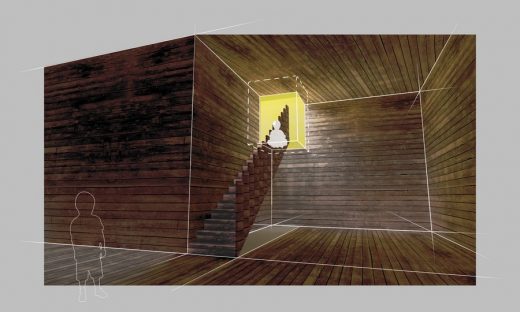
images by architects
Rome Architecture Walking Tours
Roman Buildings : Traditional architecture
Palazzetto dello Sport
Date built: 1958
Pier Luigi Nervi
Palazzetto dello Sport
Piazza Augusteo, adj. Mausoleum of Augustus & Ara Pacis
Date built: 1937
V. Ballio-Morpugo
Piazza Augusteo buildings
Architectural Design
Architectural Posts
Building Debate Articles – chronological list
Can computers replace architects?
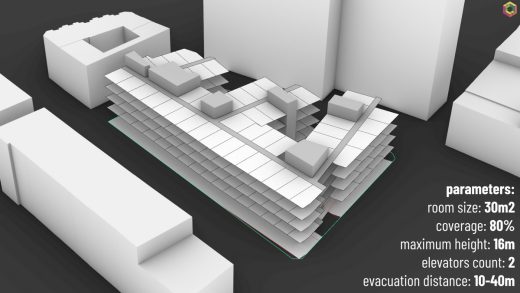
Compelling architecture style through the ages

Remodelling existing buildings decarbonisation
Buildings
Architecture Design Articles
Comments / photos for the Influence of the roman empire on architecture advice page welcome

